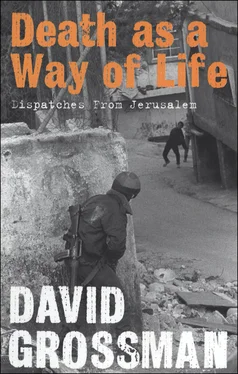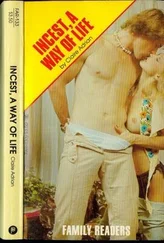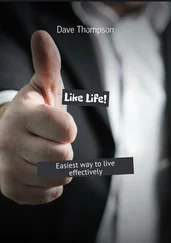David Grossman - Death as a Way of Life
Здесь есть возможность читать онлайн «David Grossman - Death as a Way of Life» весь текст электронной книги совершенно бесплатно (целиком полную версию без сокращений). В некоторых случаях можно слушать аудио, скачать через торрент в формате fb2 и присутствует краткое содержание. Год выпуска: 2013, Издательство: Bloomsbury Publishing, Жанр: Прочая документальная литература, на английском языке. Описание произведения, (предисловие) а так же отзывы посетителей доступны на портале библиотеки ЛибКат.
- Название:Death as a Way of Life
- Автор:
- Издательство:Bloomsbury Publishing
- Жанр:
- Год:2013
- ISBN:нет данных
- Рейтинг книги:5 / 5. Голосов: 1
-
Избранное:Добавить в избранное
- Отзывы:
-
Ваша оценка:
- 100
- 1
- 2
- 3
- 4
- 5
Death as a Way of Life: краткое содержание, описание и аннотация
Предлагаем к чтению аннотацию, описание, краткое содержание или предисловие (зависит от того, что написал сам автор книги «Death as a Way of Life»). Если вы не нашли необходимую информацию о книге — напишите в комментариях, мы постараемся отыскать её.
Death as a Way of Life — читать онлайн бесплатно полную книгу (весь текст) целиком
Ниже представлен текст книги, разбитый по страницам. Система сохранения места последней прочитанной страницы, позволяет с удобством читать онлайн бесплатно книгу «Death as a Way of Life», без необходимости каждый раз заново искать на чём Вы остановились. Поставьте закладку, и сможете в любой момент перейти на страницу, на которой закончили чтение.
Интервал:
Закладка:
In the Pope’s visit to the Deheisheh refugee camp, there was, however, something more important. In conversations I’ve had with Palestinians, I’ve often heard them say that they are now paying the price of the persecutions that the Jews suffered from the Christians. “We,” say the Palestinians, “are the victims of victims.” They often say that the fears that history has instilled into the Jewish soul have made it impossible for Israel to ever feel fully secure. The result, say the Palestinians, is that there will never be true peace.
I reminded them in these conversations that the Arab world has never shown any genuine goodwill toward the tiny Jewish refugee state, and that Israel is not exactly surrounded by the Salvation Army. Even today, I point out, you can still hear Arab radio stations broadcasting calls for the destruction of the “Zionist entity.”
But there can be no doubt that the Jewish people’s tragic past — a past for which the Church is largely responsible — has created some of the convoluted psychological complexities that make it very difficult for Israel to act today with more courage and largesse, with greater confidence in the Arabs.
From this point of view, the fates of the three religions, and of the Israelis, the Palestinians, and the Catholic Church, are tangled up in a tortuous and tragic knot. When I saw the Pope in the narrow streets of Deheisheh, when I saw him bless the children, the fourth generation of misery, I felt how right this visit was, this visit into the wound; how important was this direct contact with plain human suffering. Redemption will not come, of course, from this short visit, but as an Israeli, I also see recognition of the Catholic Church’s obligation to try to loosen, carefully and delicately, the noose that is strangling millions of Israelis and Palestinians.
Day Three: Yad Vashem
Today, after the ceremony at the Yad Vashem Holocaust memorial, even the most out-and-out cynics must realize how the Pope’s visit to Israel touches the foundations of our identity, our most primal emotions.
In their planning of the visit, the parties seem to have thought mostly about abstract symbols, the big images. Yet now, during the visit itself, symbols and human beings are melding time and again; abstract ideas are mixing with tears and wounds and human fragility.
So it was when the Pope spoke of the suffering of the Jews, and so it was when he met with people from his hometown in Poland, with the woman that he himself bore on his back out of the ghetto, to whom he gave a slice of bread and whom he saved from death. And so it was when he stood, head bowed, and communed with the memory of the victims.
Allow me to tell a brief story, a private one. A very dear member of my family, a survivor of the Treblinka death camp, arrived at my wedding with a bandage on her forearm. She was covering her tattooed number so as not to mar the celebration with a memento of the Holocaust. I remember how I was unable to take my eyes off that bandage. I understood then, very sharply, how much all of us here in Israel are always walking on a surface as thin as that bandage, under which lies a void that threatens, every moment, to drag down our daily lives, our illusion of routine.
I was reminded of that feeling again yesterday, when, at the ceremony, they read a letter that a Jewish woman named Jennia wrote to the woman who hid her son, Michael. The mother asked that he not forget to wear his pajamas at night, and pleaded that he eat well, to strengthen him for what awaited him. At the end, the reader concluded by saying that Jennia and her son had perished in Auschwitz. I felt then — perhaps not only I — all at once, that the thin bandage that separates our “here” in Israel from the “there” of the Holocaust had suddenly been ripped off.
True, the Pope did not ask for the Jewish people’s forgiveness, and did not apologize for the Church’s deeds during the Holocaust. Perhaps he refrained from doing so for internal Church political reasons, but to my mind it was just as well.
Think of the outcome had he apologized. Hundreds of millions of Christian believers would have felt that the Pope had absolved them forever of any personal obligation to face up to the Holocaust.
I don’t belong to those who believe that the Holocaust was a specifically Jewish event. As I see it, all civilized, fair-minded persons must ask themselves serious questions about the Holocaust and what permitted it to take place.
These are not Jewish questions. They are universal questions about the relations between human beings, about attitudes to the foreign, the different, and the weak. They are questions about the human soul that can so easily be made to stop speaking as “I” and to begin roaring about “we.” They are questions about attitudes to force, about the way a person can preserve his humanity in the face of an arbitrary power that seeks to obliterate him, and about the greatest courage of all — the courage to do a kindness to the oppressed, when it is so easy to collaborate with evil.
It is good that the Pope did not ask for forgiveness. No one can ask for forgiveness for the Holocaust in the name of others, and no person may forgive in the name of the victims. The Pope’s presence in Yad Vashem, within the most profound dimension of Jewish suffering, like the deeds of human kindness that he, as a human being, performed during the war, are more eloquent than any official declaration.
It is impossible to sum up what happened in the Holocaust in one sentence, or in one gesture, as important as that gesture might be. What happened there will remain forever mute, like a mouth wide open to scream. Something of that cry is present in the silent, missing line at the end of the poem by Dan Pagis, “Scrawled in Pencil in a Sealed Boxcar”:
Here in this transport
I Am Eve
With my son Abel
If you see my oldest son
Cain son of Adam
Tell him that I
Day Four: Service at the Mount of the Beatitudes
Yesterday, for three hours, faith and myth united concretely with the landscape in which events happened, with the names that became the building blocks of Western civilization.
More than anything else, you could perceive, in the faces of the people sitting in wheelchairs, the sense that this was a once-in-a-lifetime event. You could feel — and identify with all your heart — the magnitude of the hope and the faith here, in this place, where miracles happened.
And I, the Jew that I am, watched the ceremony, and I thought that this was the first time that most of the Jews in Israel had seen a Catholic prayer ritual. I know this may seem strange to anyone who has grown up and lived in a Christian country, or anyone accustomed to thinking of the Jews as a tiny minority, but this is the reality in Israel, and if you think about the history of relations between Jews and Christians, maybe you will be able to understand the Jewish aversion to everything having to do with Christianity and with Christian religious institutions.
Jewish pupils in the Israeli school system know almost nothing about Jesus or Christianity. They study about the Christians, generally, in the context of their persecution of the Jews.
I can testify — with some embarrassment — that I never met a single Christian person before I was ten years old (yes, yes, in little, provincial Jerusalem of the 1960s) and that what I knew about Christians came from scary stories about their cruelty toward Jews.
I’m relating this because the service yesterday at Corazin, the Mount of the Beatitudes, was a unique opportunity for millions of Israelis to shed some of these inborn stereotypes and to see — perhaps for the first time — Christianity’s other face. Jewish Israelis could now discover the humane, socially conscious, peace- and justice-seeking elements in the teachings of the man of Nazareth. Moreover, they could suddenly be close to a Christian religious ceremony without the trepidation and fear that have, for two thousand years, reverberated almost uncontrollably in the hearts of so many Jews, like a survival reflex.
Читать дальшеИнтервал:
Закладка:
Похожие книги на «Death as a Way of Life»
Представляем Вашему вниманию похожие книги на «Death as a Way of Life» списком для выбора. Мы отобрали схожую по названию и смыслу литературу в надежде предоставить читателям больше вариантов отыскать новые, интересные, ещё непрочитанные произведения.
Обсуждение, отзывы о книге «Death as a Way of Life» и просто собственные мнения читателей. Оставьте ваши комментарии, напишите, что Вы думаете о произведении, его смысле или главных героях. Укажите что конкретно понравилось, а что нет, и почему Вы так считаете.












